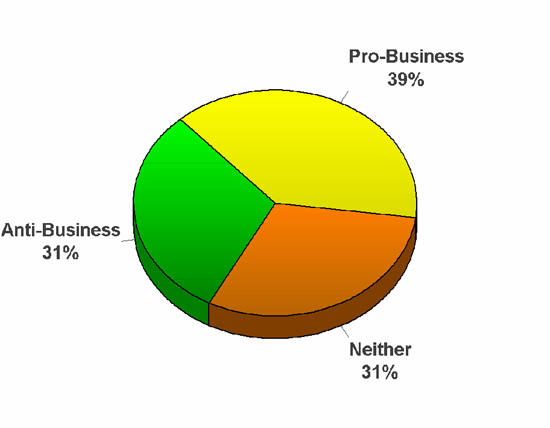2009 could be a great year for conservatives in Arizona. There are at least three good reasons to think so:
1) Thanks to Arizona voters and grassroots activists, the Arizona House and Senate in January will (finally!) have majorities of legislators who either scored very well on last year’s AFP Arizona Legislative Scorecard, or who have pledged to not raise taxes.
2) AFP Arizona has a Reform Arizona plan to reduce the gigantic state deficit, prevent any tax increases, avoid taking on debt that will hurt future taxpayers, and implement reforms to bring government spending under control for the long term. (See below for AFP Arizona’s Reform Arizona Plan.)
3) You are part of a hardworking grassroots movement in Arizona that can accomplish amazing things—IF YOU STAY MOTIVATED AND MOBILIZED. The best way to stay motivated and mobilized on fiscal policy issues is to come to our Defending the American Dream Summit, sponsored by the Americans for Prosperity Foundation, on Saturday, December 6th.
Please REGISTER TODAY, if you have not already:
http://www.defendingthedream.org/AZ/
--Chad & Tom, AFP Arizona
Reform Arizona Plan—AFP Arizona’s Top Ten Budget Reforms for 2009
1) Short-Term Budget Reform. The Legislature should send a winter or spring referendum to the voters to get permission to temporarily suspend voter-mandated automatic spending increases during the declared fiscal emergencies in Fiscal Years 2009, 2010, and 2011. (Model bill: HCR 2044 from 2008.)
2) No Tax Increases. Most important: prevent the return of the state equalization property tax. If the Legislature and Governor do nothing, there will be an automatic property tax increase of $100 per household.
3) No Federal Borrowing or General-Obligation Bonding. Those are recipes for long-term, California-style fiscal distress. Federal “help” will come with dangerous policy strings attached.
4) Spending Reductions. Save $1.5 billion by enacting immediate 15% reductions to all government agencies other than law enforcement. 15% reductions will take Arizona back to FY 2007 spending levels, with per-recipient amounts reduced to FY 2005 or FY 2006 amounts. That means a reduction in government benefits to 2005 levels. For the last five years, government has spent money at unrealistic levels, and it is now time to get back to reality. The size of the Napolitano deficit is now over $1,000 per Arizona household. We must not force Arizona taxpayers (now, or in the future) to pay for the cost of the government’s spending problem.
5) Long-Term Budget Reform. Send to the 2010 ballot a referendum changing the personal income spending limit in the AZ Constitution from 7 percent to 6.4 percent (model bill: HCR 2038 from 2008), with two new additions: a taxpayer standing clause for judicial enforcement, and a provision for immediate refund of excess monies to taxpayers. This spending limit is not as stringent as the Taxpayer Bill of Rights, but it would keep the government from growing faster than the economy.
6) Local Government Transparency. By 2010, taxpayers should be able to go online and review every disbursement made by every political entity in the state of Arizona. We passed a state-level transparency bill back in June, but we must now ensure that every government in Arizona has open books. (As an example of how opaque local governments are now, Apache County and Youngtown have told us that we need to fill out a FOIA request to read their budgets, even though state law requires them to publish their budgets and property tax levies!)
7) Treasurer Certification of the Arizona Budget. Enact legislation requiring the Arizona Treasurer to certify whether the state budgets are in legal compliance with the constitutional requirement for a balanced budget and with the state spending limit. (A great idea we got from the Goldwater Institute.)
8) Move Forward with School Choice. Every child who leaves a government district school and goes to a charter school or a private school (via scholarship tax credits or choice grants) saves the state money—and greatly improves his or her odds of getting a good education.
9) Increase the Affordability of Private Health Insurance. We must allow Arizona consumers to have access to cheaper insurance plans available in other states. You can buy shoes, automobiles, and life insurance plans produced in other states. Why not health insurance plans?
10) Use Private Financing for Future Statewide Transportation Projects. For Arizona’s transportation infrastructure, the only viable alternative to a massive tax increase (which would mean billions wasted on light rail and other transit boondoggles) is to allow private companies to finance, construct, operate and maintain new road capacity. For privatization in other areas of state government, we should create a Florida-style Council on Efficient Government to identify privatization opportunities and assist government agencies in developing business plans for privatization. (Thanks to the Reason Foundation for suggesting this idea to us.)
Chad Kirkpatrick, Arizona Chairman
Tom Jenney, Arizona Director
Americans for Prosperity
www.aztaxpayers.org

















